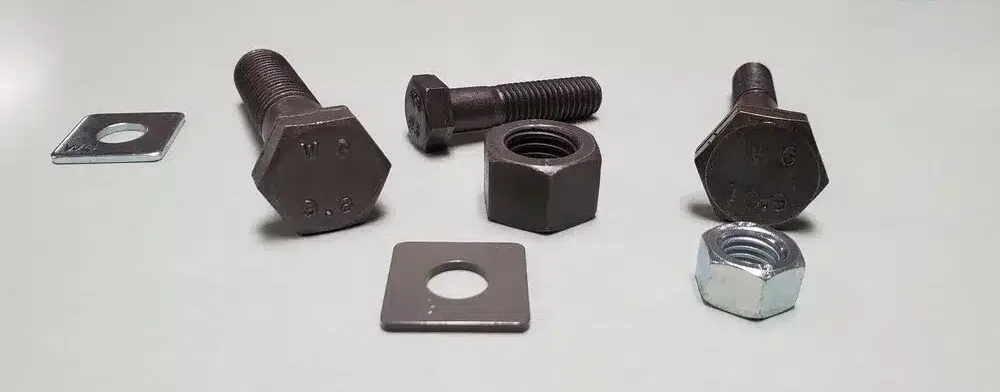Test bolts play a critical role in the design and development of mechanical systems. They’re used for many industries and applications but are especially common in the context of automotive engineering, where precision and reliability are paramount to the overall safety and performance of a vehicle. Consider applications like vehicle framing and engine assembly, for instance.
In this article, we’ll cover just one category of automotive test bolts that we frequently manufacture at Wilson-Garner: GM test bolts. We’ll delve into their significance, their role in automotive testing, plus some popular types and standards they must adhere to.
What Are GM Test Bolts?
GM test bolts are bolts that conform to the requirements of General Motors’ engineering and testing standards. They’re specialized fasteners used during the development and testing stages of manufacturing. So while GM test bolts aren’t used on actual vehicles, they help determine the correct installation of bolts that are used on vehicles.
Often made from high-quality materials like alloy steel, these bolts are designed to perform specific tests and are manufactured to the requirements specified in GM testing standards.
What Are GM Test Bolts Used For?
The primary purpose of GM test bolts is to determine the amount of torque needed to properly install various fasteners on a GM vehicle. They are used solely for tests and not actually installed on the vehicle.
Within each of these tests and more, consistency is key. The more uniform the test bolt, the more consistent and accurate test results are — and the more effective the finished product because of it. Therefore, working with a GM test bolt manufacturer that promises quality and consistency from one part to the next, and executes on that promise, is well worth the investment.
Looking for the best? Contact our team for high-quality GM test bolts that meet exacting standards each and every time.
3 Common Tests Run on GM Test Bolts
General Motors runs several tests throughout the design and engineering process. Three common tests that involve GM test bolts include torque-tension tests, bearing surface tests, and coefficient of friction tests.
- A torque-tension test measures the input torque required for a bolted joint to achieve a specified tension. This is the most common test, and is repeated throughout the design process multiple times.
- A bearing surface test measures how much the amount of surface area and roughness of the bottom of a fastener head or washer will affect friction. Bolts used for these tests generally have a bigger head than usual.
- A coefficient of friction test measures the kinetic and static resistance of the surfaces of a bolted joint as it’s being tightened.
Need help with more fastener terms and definitions? Check out our glossary here.
Types of GM Test Bolts
There are many types of GM test bolts, and they can vary in size and diameter depending on the specific test and application at hand. However, most have the following characteristics in common:
- Hex-head style
- Property Class 9.8 or 10.9
- Plain or Zinc Phos & Oil finish
GM Test Bolt Standards
For each of the tests listed above (torque-tension, bearing surface, coefficient of friction), GM test bolts need to meet specific standards set forth by General Motors. Here’s a look at some of the most common ones:
GM Test Bolt Standards for Torque-Tension Tests
- GM7112M
- GMW4707
- GMW 3044
- GMW 3359
GM Test Bolt Standards for Bearing Surface Tests
- GMW 3359
GM Test Bolt Standards for Coefficient of Friction Tests
- GMW 3044
- GMW 3359 (per ISO 16047)
- GMW 3179 (per ISO 16047)
For further information, you can read more about each of these standards on our GM Test Products page.
Keep in mind that this isn’t an exhaustive list of GM testing standards. There are plenty more, so if you run across one that isn’t listed on here, we’re more than happy to discuss and find a solution for you.
Purchase GM Test Bolts at Wilson-Garner
Every component, whether big or small, plays a critical role in the overall safety and performance of a vehicle. Test bolts are no exception. Even though they aren’t used on actual vehicles, their do their part to ensure that the fasteners that do go on vehicles are installed correctly.
At Wilson-Garner, we don’t take this responsibility lightly. Throughout our manufacturing processes, we hold ourselves to exacting quality standards. After listening to customer feedback, we now also re-roll threads on all of our test bolts after heat treatment and surface finish to eliminate plating inconsistencies or nicks.
For guaranteed quality and consistency in your GM test bolts, choose us.
